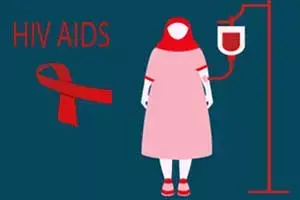- Home
- Medical news & Guidelines
- Anesthesiology
- Cardiology and CTVS
- Critical Care
- Dentistry
- Dermatology
- Diabetes and Endocrinology
- ENT
- Gastroenterology
- Medicine
- Nephrology
- Neurology
- Obstretics-Gynaecology
- Oncology
- Ophthalmology
- Orthopaedics
- Pediatrics-Neonatology
- Psychiatry
- Pulmonology
- Radiology
- Surgery
- Urology
- Laboratory Medicine
- Diet
- Nursing
- Paramedical
- Physiotherapy
- Health news
- Fact Check
- Bone Health Fact Check
- Brain Health Fact Check
- Cancer Related Fact Check
- Child Care Fact Check
- Dental and oral health fact check
- Diabetes and metabolic health fact check
- Diet and Nutrition Fact Check
- Eye and ENT Care Fact Check
- Fitness fact check
- Gut health fact check
- Heart health fact check
- Kidney health fact check
- Medical education fact check
- Men's health fact check
- Respiratory fact check
- Skin and hair care fact check
- Vaccine and Immunization fact check
- Women's health fact check
- AYUSH
- State News
- Andaman and Nicobar Islands
- Andhra Pradesh
- Arunachal Pradesh
- Assam
- Bihar
- Chandigarh
- Chattisgarh
- Dadra and Nagar Haveli
- Daman and Diu
- Delhi
- Goa
- Gujarat
- Haryana
- Himachal Pradesh
- Jammu & Kashmir
- Jharkhand
- Karnataka
- Kerala
- Ladakh
- Lakshadweep
- Madhya Pradesh
- Maharashtra
- Manipur
- Meghalaya
- Mizoram
- Nagaland
- Odisha
- Puducherry
- Punjab
- Rajasthan
- Sikkim
- Tamil Nadu
- Telangana
- Tripura
- Uttar Pradesh
- Uttrakhand
- West Bengal
- Medical Education
- Industry
Newly detected HIV variant more contagious, may double rate of immune system decline

Geneva, Feb 8 - According to a new study led by researchers from the University of Oxford's Big Data Institute newly-detected HIV variant from the Netherlands is more transmissible and damaging.
The study has shown that people living with the newly revealed subtype-B of HIV experience double the rate of immune system decline (CD4 count).
They have higher viral loads (amount of virus in the blood) and are also vulnerable to developing AIDS two to three times faster after diagnosis than if they were living with other strains of the virus.
The study also revealed that the variant has been circulating in the Netherlands for years and remains receptive to HIV treatment.
While the newly identified variant does not represent a major public health threat, it "underscores the urgency of speeding up efforts to halt the HIV pandemic", the UNAIDS said in a statement
The HIV pandemic continues to take a life every minute and scientists have long worried about the evolution of new, more transmissible, variants of HIV.
"Ten million people living with HIV worldwide are not yet on treatment, fuelling the continued spread of the virus and potential for further variants," said Eamonn Murphy, UNAIDS Deputy Executive Director, Programme, in the statement.
Murphy also called for urgent "need to deploy cutting-edge medical innovations in ways that reach the communities most in need".
"Whether it's HIV treatment or Covid-19 vaccines, inequalities in access are perpetuating pandemics in ways that harm us all," Murphy added.
With an estimated 79 million people infected, HIV remains the deadliest pandemic of our time, the UNAIDS said.
It still has no vaccine or cure. The treatment is only antiretroviral therapy, which keeps them alive and well and prevents transmission of the virus.
But the Covid pandemic has affected the treatment, leading to the death of some 36 million people from AIDS-related illnesses since the start of the pandemic.
About 1.5 million people were newly infected with HIV in 2020.
Of the 38 million people living with HIV today, 28 million are on life-saving antiretroviral therapy.
Medical Dialogues Bureau consists of a team of passionate medical/scientific writers, led by doctors and healthcare researchers. Our team efforts to bring you updated and timely news about the important happenings of the medical and healthcare sector. Our editorial team can be reached at editorial@medicaldialogues.in.
Dr Kamal Kant Kohli-MBBS, DTCD- a chest specialist with more than 30 years of practice and a flair for writing clinical articles, Dr Kamal Kant Kohli joined Medical Dialogues as a Chief Editor of Medical News. Besides writing articles, as an editor, he proofreads and verifies all the medical content published on Medical Dialogues including those coming from journals, studies,medical conferences,guidelines etc. Email: drkohli@medicaldialogues.in. Contact no. 011-43720751


